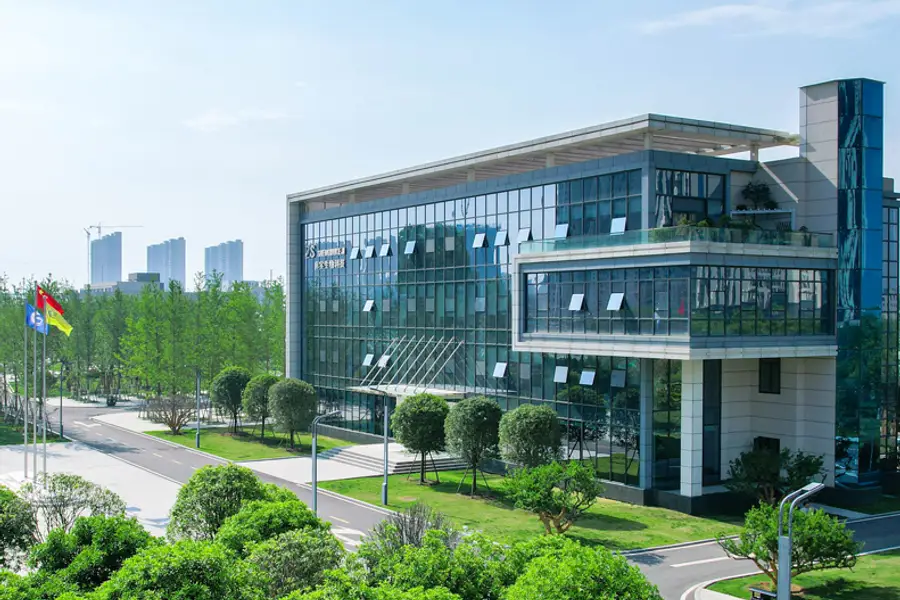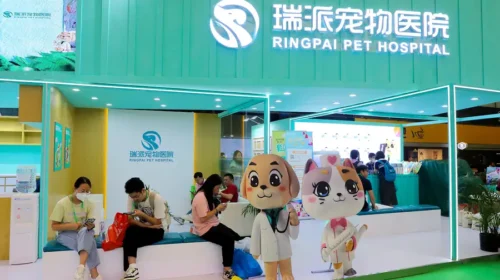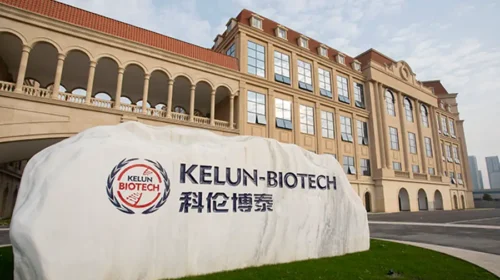Genuine Biotech takes third shot at IPO as financial pressures mount

Demand for the company’s core product has long since faded, and sales for the product took an additional hit after the termination of a distribution partnership with Fosun Pharma
Key Takeaways:
- Genuine Biotech generated only 9 million yuan in the first half of this year from Azvudine after regaining rights to commercialize the drug a year ago
- The company has lost nearly 1 billion yuan over the past two and a half years, and is facing severe cash flow challenges as it makes a new attempt to list in Hong Kong
By Molly Wen
There was a time when Covid drug developers were capital market darlings, especially ones that could launch their drugs while the pandemic was still raging. But the pandemic’s rapid fading took away the appeal almost as quickly as it arrived, leaving companies that once basked in the limelight as Covid drug superstars out in the cold, scrambling to find replacements. One such company is Genuine Biotech Ltd., which rose to prominence on Azvudine, China’s first domestically developed oral Covid-19 antiviral drug.
Now, the company is looking for some of its own medicine for an ailing balance sheet with a new attempt to list in Hong Kong. The Nov. 9 listing application is the company’s third, following previous attempts in August 2022 and February 2025 that both failed to secure approval from the Hong Kong Stock Exchange within a six-month time limit.
Unlike the previous attempts, the latest application has become almost a matter of life or death for the company. Demand for Azvudine has significantly diminished, leading to a revenue plunge made worse by the termination of its commercialization partnership for the drug with Fosun Pharma (2196.HK; 600196.SH). The company’s cash flow is nearing exhaustion, and it also remains bound by a listing value-adjustment mechanism (VAM) agreement that will come due in just seven months.
Founded in 2012, Genuine Biotech focuses on the development and production of innovative drugs for viral infections, oncology and cardio-cerebrovascular diseases. Its pipeline contains five drug candidates, led by Azvudine, the first approved oral Covid-19 treatment in China, alongside four additional products in preclinical stages.
With the pandemic’s rapid fading and plunging demand for related therapeutics, Genuine Biotech is now working to advance combination therapies based on Azvudine, aiming to expand the drug’s use to major diseases such as liver cancer, colorectal cancer, non-small cell lung cancer (NSCLC), and HIV.
Azvudine received its key conditional approval from China’s drug regulator in July 2022 to treat Covid, but has consistently faced questions since then due to the short duration of its clinical study, lack of data transparency, and uncertain efficacy. Under the regulator’s conditional approval, Azvudine was required to complete its confirmatory clinical trials before 2026 and provide sufficient evidence to support its efficacy and safety to obtain full approval. Otherwise, its drug registration certificate will be revoked in 2027, and the product will be forced to withdraw from the market. Genuine Biotech stated in its prospectus that it expects to complete the required clinical study report for the drug by the end of 2025.
Even if Azvudine ultimately secures full approval, the steep decline in revenue for the drug – currently Genuine Biotech’s main revenue source – will be difficult to reverse. According to the prospectus, the company’s revenue fell from 344 million yuan in 2023 to 238 million yuan in 2024. It then plummeted 92% year-on-year to just 16.53 million yuan in the first half of 2025, mainly due to a sharp drop in royalty income as its distribution partnership for the drug with Fosun Pharma ended.
Genuine Biotech entered that agreement in 2022, awarding Fosun Pharma exclusive commercialization rights for Azvudine in China. The partnership provided the majority of the company’s revenue in 2023 and 2024. But in September last year the two sides ended the agreement, and rights to Azvudine reverted to Genuine Biotech. The company subsequently shifted to a distributor-based sales model and, as of June 30, had signed agreements with 74 distributors. But the transition has fallen far short of expectations, with new sales channels only generating 9 million yuan in revenue in the first half of 2025.
Severe financial distress
Genuine Biotech’s profitability is equally troubling. The company recorded a net loss of 784 million yuan in 2023, which fell to 40 million yuan in 2024, before rising again to 165 million yuan in the first half of 2025, totaling nearly 1 billion yuan over two and a half years. That cash drain has put the company into a severe liquidity crunch, with just 50 million yuan in cash in its coffers at the end of June, less than half the 138 million yuan it had at the end of 2024.
As its financial pressure mounts, the company has also reined in its R&D spending. Such expenses contracted from 238 million yuan in 2023 to 151 million yuan in 2024, and were just 54 million yuan in the first half of 2025. While necessary, such reduced spending could ultimately crimp development of new drugs the company desperately needs to reverse its revenue declines. As of the first half of 2025, Genuine Biotech had net current liabilities of 984 million yuan, indicating substantial short-term debt repayment pressure.
Among other things, one of the greatest pressures facing the company right now comes from its soon-to-expire value-adjustment mechanism (VAM) agreement. According to the prospectus, the company raised 713 million yuan in two financing rounds in 2021 and 2022, both of which included redemption rights. If its listing application is rejected or if the company fails to complete its IPO within 47 months from its first filing, investors are entitled to redeem their preferred shares at an annual interest rate of 10%. Since Genuine Biotech first filed to list in August 2022, nearly 40 months have now passed, leaving the company with only around seven months to complete its listing.
Genuine Biotech was once valued as high as 3.56 billion yuan following its Series B financing in 2022. But with revenue from its core product continuing to decline and its remaining pipeline still in early clinical stages that will require substantial spending, sustaining such a valuation looks increasingly difficult. Failure to complete its listing this time could pose significant redemption obligations for the company – something it can hardly afford. Accordingly, investor support for this kind of biotech with falling revenue, ongoing losses, and rapidly deteriorating liquidity remains a big question mark and could bode poorly for the latest listing application.
To subscribe to Bamboo Works weekly free newsletter, click here






